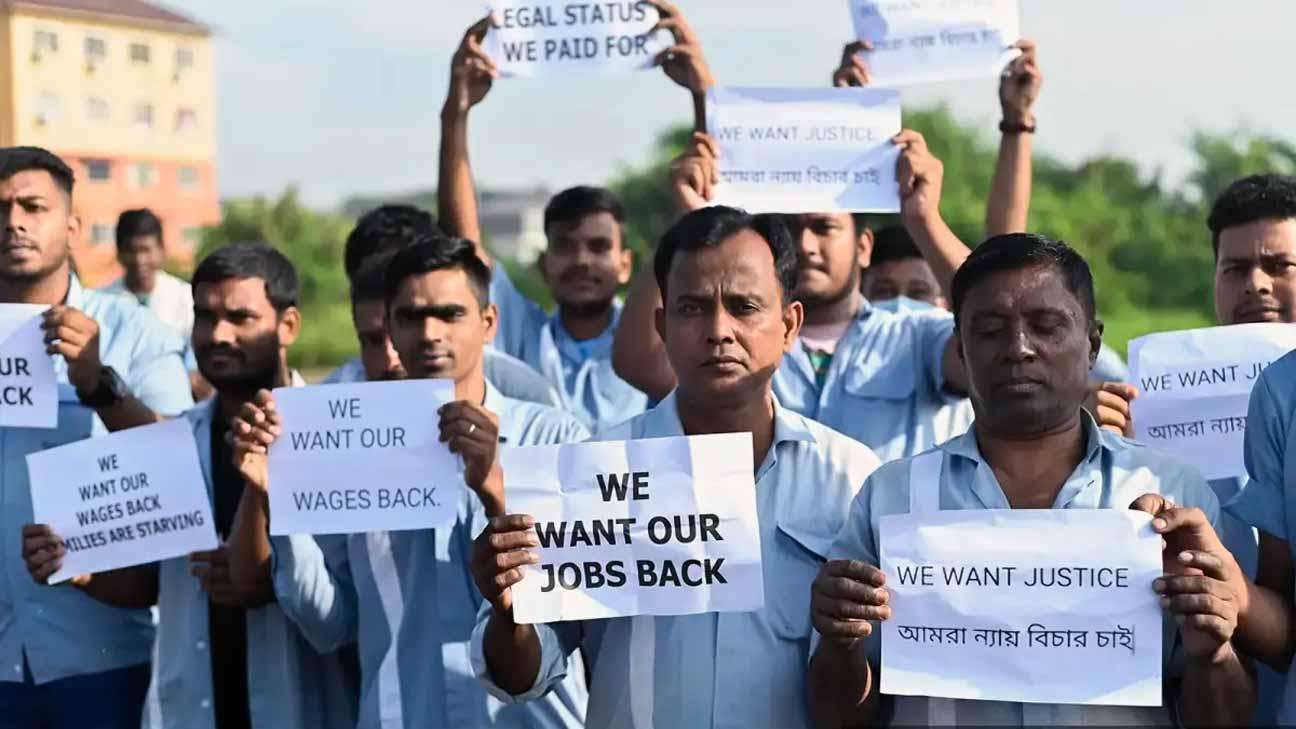A cruel DWP rule is forcing a dedicated NHS district nurse and single mother into a desperate cycle of homelessness, preventing her from advancing her career and providing stability for her young daughter. Nadine Rich, a qualified nurse from Peel Hall, Wythenshawe, is trapped in temporary accommodation 11 miles from her support network, battling rodent infestations and mould, all while a government policy actively punishes her efforts to work full-time, Daily Dazzling Dawn understands.
Nadine, responsible for raising her three-year-old daughter, Nevaeh, found herself without a home last April following the breakdown of her relationship. With private renting out of reach due to past circumstances, her only recourse was to apply for a council house. While on the waiting list, she has been placed in temporary accommodation in Abbey Hey, a significant distance from her family, friends, workplace, and Nevaeh's school.
The conditions in her temporary flat are far from ideal. Nadine reports a persistent infestation of rodents, leading to multiple pest control visits that have already cost her a staggering £600. The property has also suffered from mould, requiring treatment and repairs by Manchester Council. Despite these interventions, Nadine emphasizes her desire to escape the unsuitable living situation and the 14-month-long predicament she and her daughter have endured.
The heart of Nadine's struggle lies with a baffling DWP rule. As a single parent, she should be entitled to Universal Credit payments to supplement her income, which would provide a crucial £378 per month towards essential costs like rent. However, she is ineligible for Universal Credit because she is in temporary homeless accommodation – a situation not covered by the current DWP guidelines.
This leaves Nadine solely reliant on Housing Benefit, which, ironically, is designed to decrease the more a person earns. To ensure her benefits cover her exorbitant monthly rent of £875, Nadine has been forced to reduce her working hours as an NHS nurse. This critical decision not only impacts her current financial stability but also severely hinders her career progression.
"It's putting my life on hold," Nadine shared, her voice laced with frustration. "I cannot progress from Band Five to Band Six because I need to do a course. If I go to university for the course, I still have to pay rent, and without an income, I will end up in rent arrears again." She powerfully reiterated, "I'm a nurse. I'm a qualified nurse." The irony of a skilled healthcare professional being unable to secure stable housing due to an administrative loophole is not lost on her.
Manchester City Council has responded to Nadine's apartment concerns, stating, "This property was inspected earlier this year in response to a complaint from the tenant. Some evidence of damp, and a small area of mould, was identified and we instructed the accommodation provider to carry out a number of repairs to address this. These were all completed. There was no evidence of pests at the time." They extended an open invitation for Nadine to arrange a further inspection if needed.
Regarding the flat's remote location, the council explained the pressures on temporary accommodation: "Pressure on temporary accommodation caused by demand relative to supply means that it is often not possible to house people facing homelessness in their preferred area. We are making progress in reducing such placements, both through increased prevention of homelessness and by increasing our supply of suitable temporary accommodation within the area, as well in the longer term by delivering 10,000 social, council and genuinely affordable homes by 2032 - with more being built now than at any time in the last 15 years."
While the council acknowledges the challenges, Nadine's case highlights a critical flaw in the DWP's Universal Credit policy that actively penalizes individuals striving for independence and career advancement, trapping them in a cycle of insecurity. As Nadine continues her struggle, her story serves as a stark reminder of the urgent need for a review of policies that inadvertently create homelessness among those dedicated to serving the community.



_2.jpg)
_1.jpg)



.svg)


